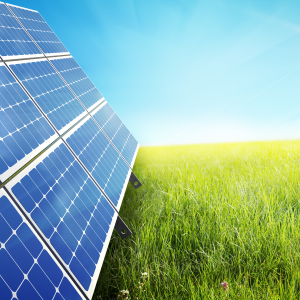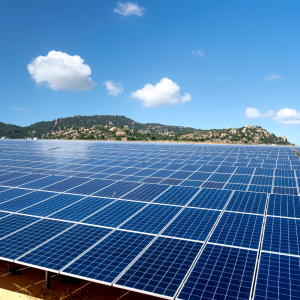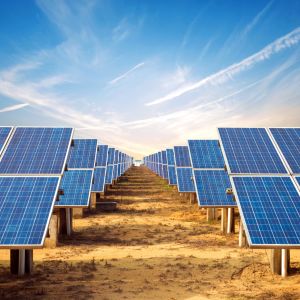How To Get Free Solar Panels From The Government
As an Amazon Associate, I earn from qualifying purchases, at no additional cost to you. Disclaimer
I am about to share with you a fascinating journey about a life-changing opportunity offered by the government. Who wouldn’t appreciate slashing utility bills, contributing to a cleaner environment and walking the path of sustainability? I bet most of us would love that! Here’s an exciting sneak peek into my insightful exploration on navigating the steps, procedures, and benefits of how to get free solar panels from the government – the source you may least expect. Trust me, making the switch to solar energy is a lot easier than most people would have you believe!

Understanding Solar Energy
Solar energy is a subject that has been buzzing around in recent times, so let’s delve into what it is all about.
What is Solar Energy?
At a basic level, solar energy is energy from the sun. It is a renewable and clean source of energy that can be harnessed in many ways. This energy can be used to generate heat for homes, power electric appliances, or even fuel vehicles.
Benefits of Solar Energy
The benefits of using solar energy are immense. Solar energy is environmentally friendly since it practically has zero emissions. It’s a fantastic way to reduce your carbon footprint while saving money on your electricity bill. Additionally, small-scale solar installations can supply electricity to remote locations without the need for expensive and invasive installations of power lines.
How do Solar Panels Work?
Solar panels work by converting sunlight into electricity. Thanks to the photovoltaic cells in the panels, sunlight can be absorbed and turned into a flow of electrons, which we know as electricity. When the sun shines on these cells, they create an electric field that can be harnessed and channeled to power electronic devices.
Government Initiatives on Solar Energy
Governments across the world are adopting solar energy and encouraging their citizens to do the same.
The Importance of Government Support
Government support is crucial in the shift toward solar energy. Policies and incentives provided by the government can significantly lower the cost of installing and maintaining solar panels, making it a more viable option for the general public.
Global Initiatives
Around the globe, numerous initiatives aim at promoting the use of solar energy. For example, the International Solar Alliance brings together countries from the sunny tropics to accelerate the adoption of solar energy.
Local Initiatives
On the local level, city or state governments might offer various incentives for residents to install solar panels. These incentives can come in the form of rebates, reduced property taxes, or even offering free solar panels.

Overview of Solar Panel Cost
Installing a solar panel system is an investment, and it’s worthwhile to understand the associated costs.
Buying Solar Panels
The cost of buying solar panels varies depending on the brand, the size of the system, and your location. The initial cost may seem steep, but the long-term savings on electricity bills make it a worthy investment.
Maintenance Cost
Solar panels require little maintenance. Occasionally, it may be necessary to replace components. Depending on where you live, you may also need to clean the panels to ensure they remain efficient.
Saving on Electricity Bills
The most significant advantage of installing solar panels is the potential savings on your electricity bills. You can utilize the power generated by your solar panels, reducing your dependence on the power grid and lowering your monthly power bills.
How To Get Free Solar Panels From The Government: Solar Panel Grants
There are several types of grants that can help offset the cost of solar panels.
Federal Grants
Federal grants are available to individuals and businesses who wish to install solar panels. These grants often cover a substantive portion of the initial installation costs.
State Grants
In addition to federal grants, many states offer their own grants to incentivize solar energy deployment. These grants may also include incentives like property tax exemptions and net metering benefits.
Local Government Grants
Local government grants often focus on particular areas or demographic groups. They might, for example, target low-income families or people living in specific neighborhoods.
Non-profit Organization Grants
Finally, numerous Non-profit organizations offer grants and financing options for installing solar panels. These organizations may focus on promoting renewable energy, reducing energy poverty, or improving energy efficiency.

How To Get Free Solar Panels From The Government: How to Qualify
Free solar panels sound like a great deal, right? Read on to understand the criteria.
Eligibility Criteria
Eligibility criteria for free solar panels vary depending on the specific grant program. Common requirements could include income thresholds, geographic criteria, or owning a suitable property for solar panel installation.
How to Evaluate Your Home for Solar Panels
Physical evaluation of your home also plays a part in whether you qualify. Factors considered include the size and pitch of your roof, the direction it faces, and the amount of sunlight it receives throughout the day.
Income Requirements
Income requirements vary but typically, government programs aim to assist those in lower income brackets who would benefit significantly from reduced energy costs.
Application Process for Solar Panel Grants
Applying for solar panel grants involves a methodical process.
First Step: Research
The first step is research. Understanding what grants are available, their requirements, and the application process is crucial.
Second Step: Application
Once you’ve identified a suitable grant, the next step is to apply. An application typically includes information about your property, your financial situation, and why you want to install solar panels.
Third Step: Evaluation
After submitting your application, it will be evaluated. If your application is accepted, you’ll receive further instructions on the next steps in the installation process.

Federal Tax Credit for Solar Panels
The U.S. federal government offers a significant incentive for solar panel installation: a tax credit.
Understanding the Solar Investment Tax Credit
The Solar Investment Tax Credit is a federal tax credit that allows you to deduct a portion of your solar costs from your taxes. This essentially reduces the overall cost of your solar panel system.
Eligibility for the Tax Credit
To be eligible, you must own the solar panel system (as opposed to leasing it). The amount of the tax credit depends on when you install the system.
How to Claim the Tax Credit
To claim the tax credit, you must fill out the relevant forms when filing your federal income tax return.
State-Specific Solar Programs
Some states have specific programs encouraging solar energy installation.
California Solar Initiative
The California Solar Initiative is a program designed to increase solar installations in California’s homes and businesses.
New York Solar Plan
New York offers state-specific incentives like the NY-Sun initiative, providing financial incentives for solar installations.
Arizona Solar Program
Arizona also has a solar program. The Arizona Public Service offers incentives for solar installations.

Non-Government Free Solar Panel Options
Besides government initiatives, other options can help you get solar panels for free or at a reduced cost.
Solar Leasing Companies
One option is through solar leasing companies. In a solar lease, the company owns and maintains the solar panels, and you pay a monthly lease fee.
Non-Profit Solar Installations
Some non-profit organizations install solar panels for free for those in need. This can be a great option for eligible homeowners.
Crowdfunded Solar Projects
Crowdfunding is becoming increasingly popular for financing solar panel installations. Individuals fund solar projects in return for a portion of the profits or a power credit.
Maintaining Your Solar Panels After Installation
After installation, maintenance is essential to ensure your solar panels last as long as possible.
Regular Cleaning
Dust and debris can accumulate on solar panels over time, potentially compromising their efficiency. Regular cleaning ensures they stay in optimal condition and continue to effectively convert sunlight into electricity.
Yearly Inspections
Performing yearly inspections can identify potential issues early before they become serious problems.
Addressing Damages and Repairs
Solar panels are built to last, but sometimes damages can occur. Responding promptly will ensure your system keeps functioning optimally.
In conclusion, investing in solar energy is a smart move, and with the government’s help, it’s much more affordable. The benefits of a clean and virtually limitless power source make solar energy a key player in the quest for a more sustainable future. So, why not explore the possibility of reaping free energy from the sun?

